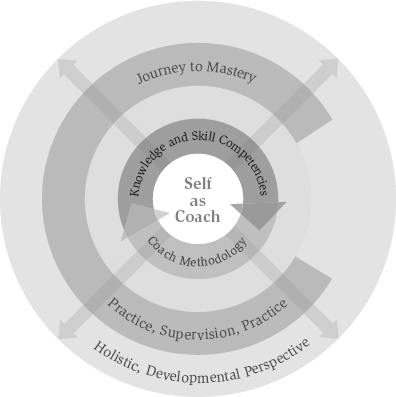© The Hudson Institute of Santa Barbara

© The Hudson Institute of Santa Barbara

The standard skill-based competencies in coaching are the basics of building a contract, building a trusting relationship, listening, asking good questions that build awareness and insight and create new ways of thinking about things, building action steps, designing plans for supporting change, and measuring results and outcomes. These basics are critical to great coaching and much more complex than a cursory glance might suggest. The tasks of learning to listen at profound levels and ask questions that are provocative and arise from a sense of curiosity are hefty challenges for coaches. And although it is not the purpose of this book to review each of these skills in depth, it is useful to highlight a few resources that are particularly helpful to coaches in the early stages of development: